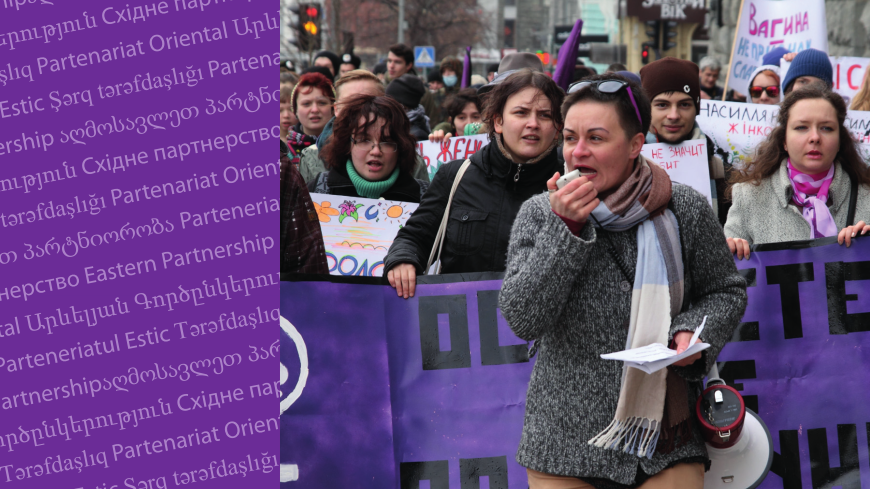Policy-makers, judges, prosecutors, legal professionals, as well as representatives of academia and civil society can now benefit from updated national studies “Barriers, remedies and good practices on women’s access to justice” for Azerbaijan, Georgia, the Republic of Moldova, and Ukraine.
The studies were first prepared in 2017 and updated in 2023 with the aim to identify and support the removal of obstacles to women’s access to justice in these four Eastern Partnership countries, as well as to strengthen the capacity of national authorities to ensure that the justice chain is more gender-responsive.
All four studies now feature an outline of positive developments that have occurred in the countries since their first publication, such as the ratification of the Istanbul Convention by the Republic of Moldova, Georgia and Ukraine, but also the negative consequences of unforeseen events, namely the global Covid-19 pandemic and Russia’s full-scale aggression against Ukraine.
Download the national studies “Barriers, remedies and good practices on women’s access to justice” for Azerbaijan, Georgia, the Republic of Moldova, and Ukraine
The studies are part of the European Union and the Council of Europe joint programme “Partnership for Good Governance”, co-funded by the European Union and the Council of Europe, and implemented by the Council of Europe, in the framework of the regional project “Women's Access to Justice: implementing Council of Europe’s gender equality and violence against women standards”.





